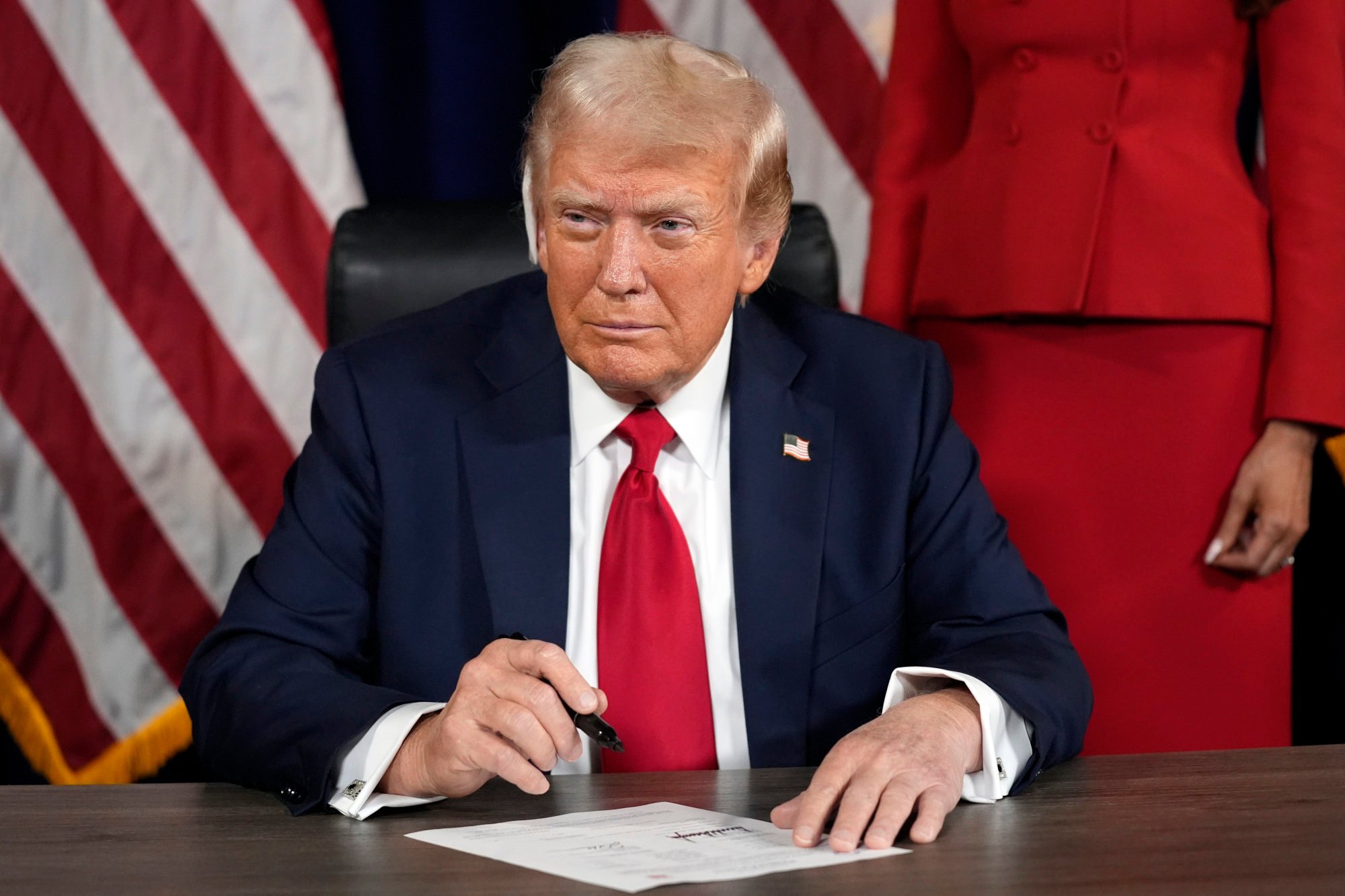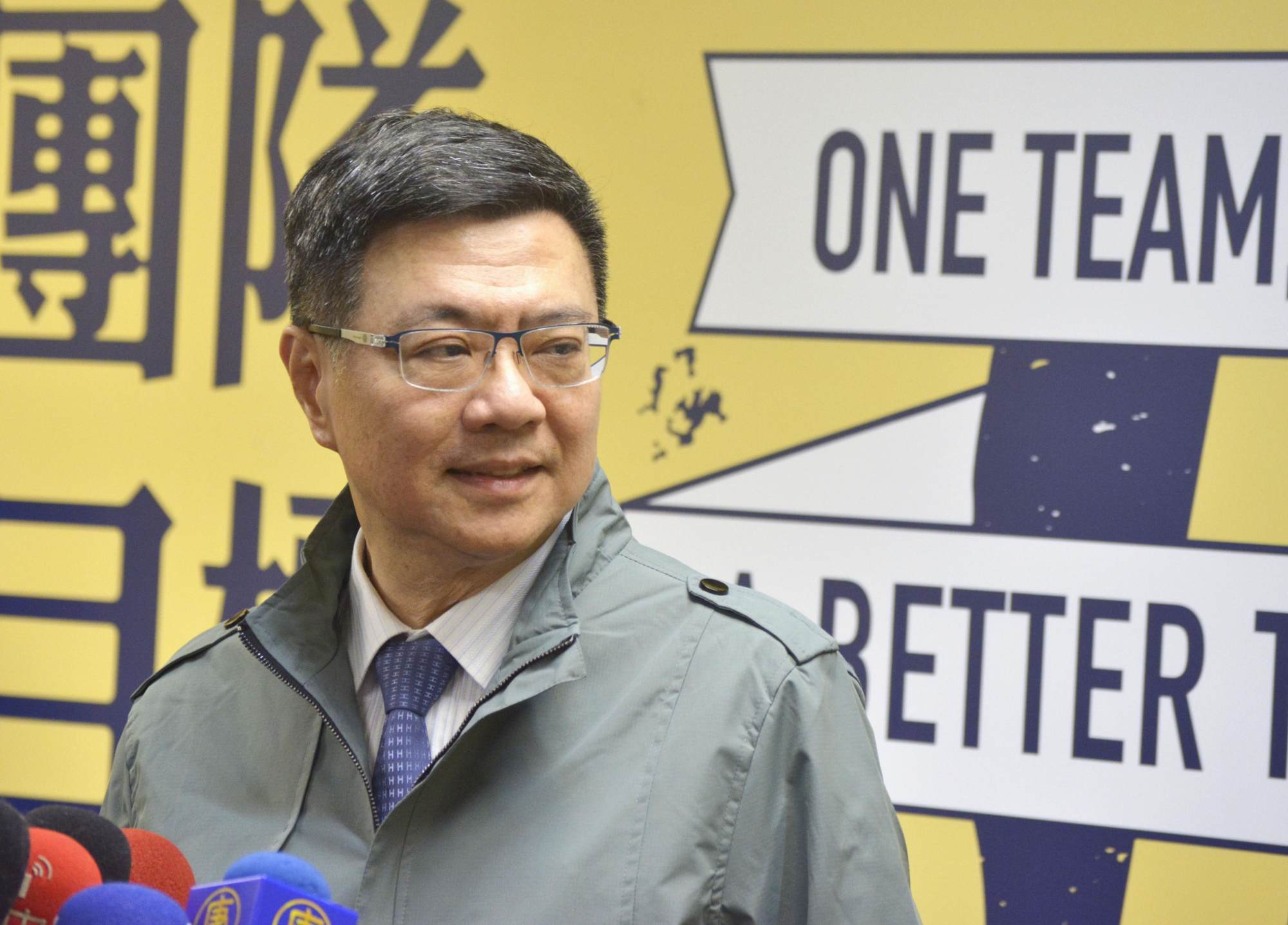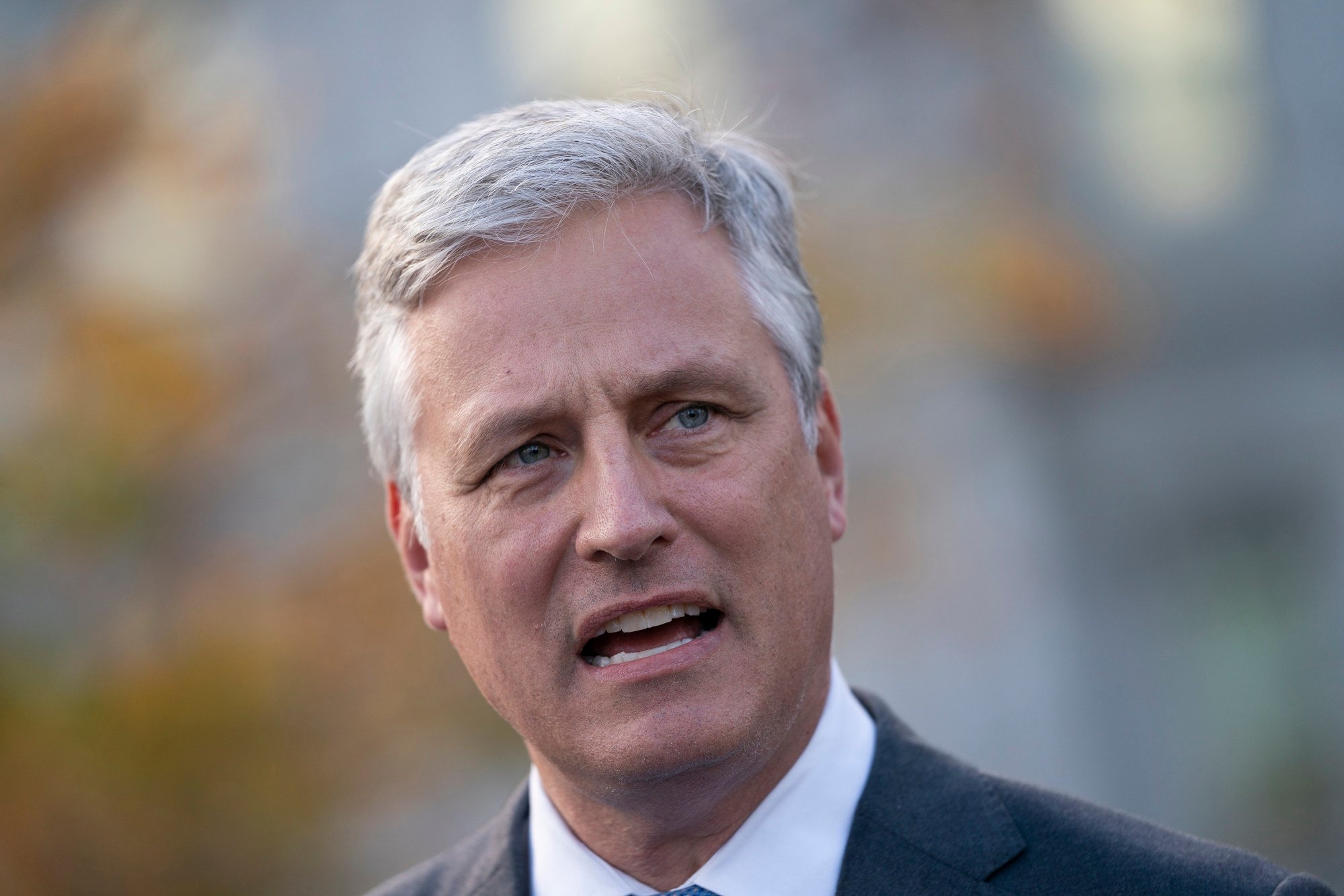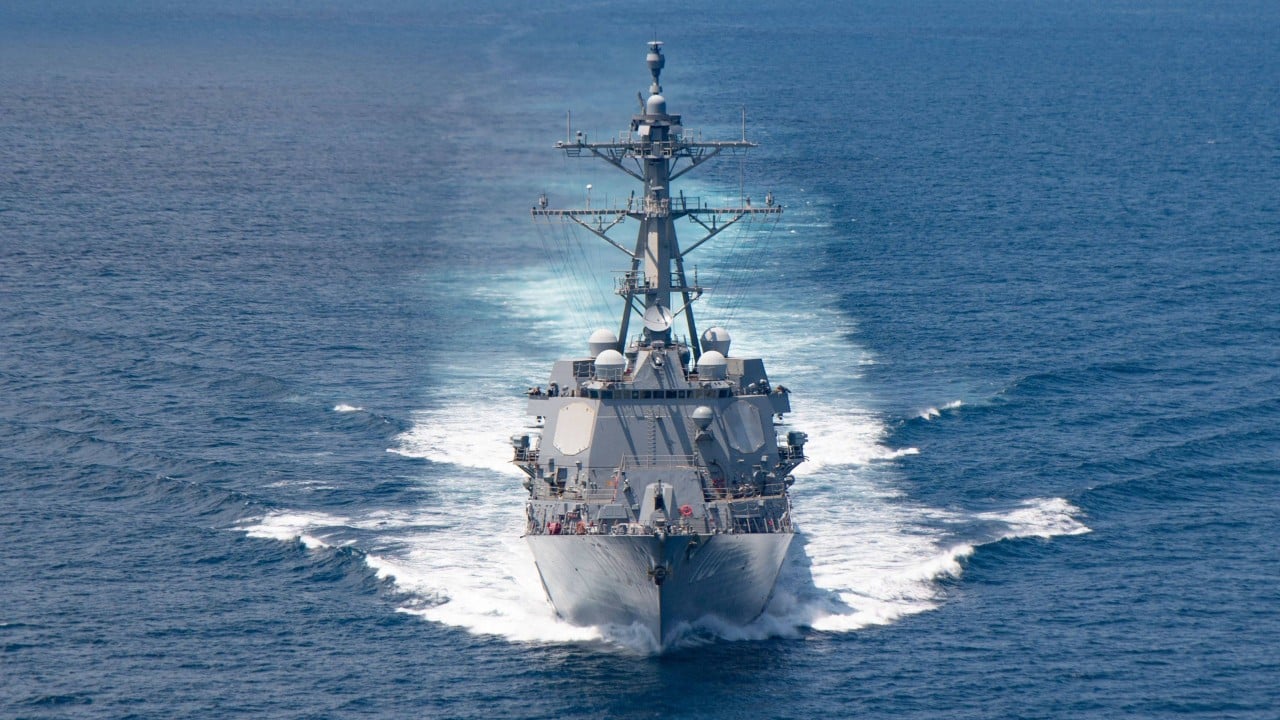The potential return of Donald Trump to the US presidency could not only increase Taiwan’s costs for defence and trade, but also raise questions about how the island’s new government would rally Washington to counter Beijing, analysts said.
The US Republican presidential nominee, who is seeking a second term in the White House, has said that it is “stupid” for the United States to offer protection to Taiwan for free, insisting that Taipei must pay more if it wants Washington to help defend the island.
“[Taiwan] did take about 100 per cent of our chip business,” Trump said in a June 25 interview published on Wednesday, adding that “Taiwan should pay us for defence. You know, we’re no different than an insurance company. Taiwan doesn’t give us anything.”

Trump’s comments have sparked concerns in Taiwan over whether his return to office could lead to less US protection if the self-ruled island did not pay enough to Washington to fend off a potential attack from mainland China’s People’s Liberation Army (PLA).
In Taipei on Friday, Taiwanese Foreign Minister Lin Chia-lung said the island would rely on its own abilities to defend itself against escalating military threats from the PLA.
He said Taiwan’s military spending had consistently increased over the past eight years, and now stood at 2.5 per cent of GDP, adding: “I expect this will continue to rise.”
Some lawmakers questioned Trump’s accounting.
“We have already paid a huge amount of money in procuring US arms for years, and the numbers keep going up each year. Does that mean we have to provide more funds as protection fees to the US in the future?” asked Wang Hung-wei, a legislative caucus leader of the main opposition Kuomintang (KMT) party.
Some Taiwanese lawmakers also speculated about the likelihood of a Trump-led US sending forces to help the island in the event of a cross-strait conflict.
“Given Trump’s transactional personality, who knows if he would find our ‘protection fees’ sufficient to warrant defence from the US, or if he might have second thoughts about our defence needs,” KMT legislator Ma Wen-chun said.
In the interview with Trump, Bloomberg Businessweek described the 78-year-old as having a “lukewarm” attitude about standing up to PLA aggression against Taiwan. “Taiwan is 9,500 miles (15,000km) away [from the US]” but just “68 miles away from China”, Trump was quoted as saying, expressing scepticism about whether it was possible to defend Taiwan from so far away.

In response, Cho Jung-tai, the Taiwanese premier, said on Wednesday that the island “is willing to take on more responsibility” for the security of the Taiwan Strait and the Indo-Pacific region.
“Taiwan has steadily increased its defence budget, resumed its one-year conscript service, and enhanced society’s resilience to various challenges … to demonstrate its responsibility to the international community and win support from more countries.”
Cho also thanked the US for repeatedly expressing concerns over the island’s security, stressing that Taipei and Washington had “good relations” despite the lack of formal ties.
Beijing sees Taiwan as part of China, to be reunited by force if necessary. Like most countries, the US does not recognise Taiwan as independent but opposes any attempt to take the island by force and is legally bound to supply it with defensive weapons.

Trump’s former national security adviser Robert O’Brien said on Wednesday that Taiwan needed to significantly boost its defence spending. He suggested Taiwan should consider spending “at least 5 per cent of its gross domestic product” on its military to keep up with Beijing, though he implied that figure was a rough estimate, Reuters reported.
In Washington, US State Department spokesman Matthew Miller said Taiwan had bought “billions of dollars” of military equipment from the US.
“The purchases that [Taiwan] has made are not only important to regional security but also to the US economy,” he said, stressing that the purchases “have not been in any way charity from the US”.
Taiwan has budgeted a record NT$606.8 billion (US$18.5 billion) for military spending in 2024, up 4.6 per cent from 2023. Between 2016 and 2024, Taiwan bought more than NT$800 billion worth of arms from the US, according to Taiwan’s defence ministry.
Analysts cautioned that given Trump’s transactional and protectionist nature, the island’s government under leader William Lai Ching-te might have to worry about Trump comparing offers from Taipei and Beijing.
“Trump is well-known for his transactional approach. If he is elected again, he will ask allies and partners to contribute more to self-defence, including Nato, Japan, South Korea and Taiwan,” said James Yifan Chen, a professor of diplomacy and international relations at Tamkang University in New Taipei.
Chen said Taiwan spent a lot on weapons purchases, ammunition and equipment from the US when Trump was in office. Under the previous Trump administration, US arms sales to Taiwan reached a record high of US$18.3 billion over four years, compared to the US$6.3 billion so far during the presidency of Joe Biden.
“Therefore, the question is what a future Trump administration could sell to Taiwan that would not drag America into military conflicts with China,” Chen added.
In addition to increased arms purchases, if re-elected, Trump might also ask Taiwan to open up its market for more American agricultural products. “If Taiwan considers extending and reopening nuclear power plants, it will be a big share for American companies,” Chen added.
Huang Kwei-bo, a professor of diplomacy at National Chengchi University in Taipei, cautioned that a Trump return would increase uncertainty for the Lai government’s policy of securing Washington’s support to counter Beijing.
“Trump is expected to prioritise the interests the US could gain by comparing offers made by Taiwan and the mainland,” Huang said. “This would increase uncertainty for the Lai government not only in terms of cross-strait relations but also Taiwan’s ties with the US.”
He warned that if cross-strait relations deteriorated further and Trump returned to office, the Lai government would not have “much bargaining leverage” with Washington for its support to counter Beijing.
Cross-strait relations have worsened since Lai, of the independence-leaning Democratic Progressive Party (DPP), was elected to succeed Tsai Ing-wen, also from the DPP, in January. Beijing has labelled Lai an “obstinate separatist” whose leadership would bring war to Taiwan.
Lai’s inaugural address on May 20 provoked Beijing further when he declared that Taiwan and the mainland were “not subordinate to each other”. In response, Beijing launched large-scale military drills around Taiwan, simulating a blockade.
Wang Kung-yi, head of the Taiwan International Strategic Study Society, a think tank in Taipei, was more optimistic about the impact on Taiwan of a Trump return.
While Trump – if re-elected – would likely ask for more protection fees from Taipei, it was less likely he would stop defence support for the island simply because Taiwan was too far from the US, Wang argued.
“The US has military bases in the Indo-Pacific, including those in Japan, Guam and the Philippines. It can always send forces from those bases to aid Taiwan,” Wang said.
“Therefore, it is less likely a Trump return would see the discontinuation of US defence support for Taiwan. After all, Washington cannot stand to lose Taiwan, which is of great strategic importance to the US when it comes to countering mainland China,” Wang said.
Chen, from Tamkang University, also predicted that US-Taiwan ties would remain “more or less the same in an unofficial capacity”, and that “Trump may send some non-sensitive cabinet members to Taiwan to demonstrate his tougher stance against China”.
“Trump knows the limits of the US in assisting Taiwan, particularly geopolitically,” he said.


